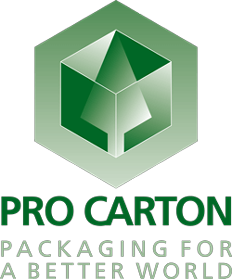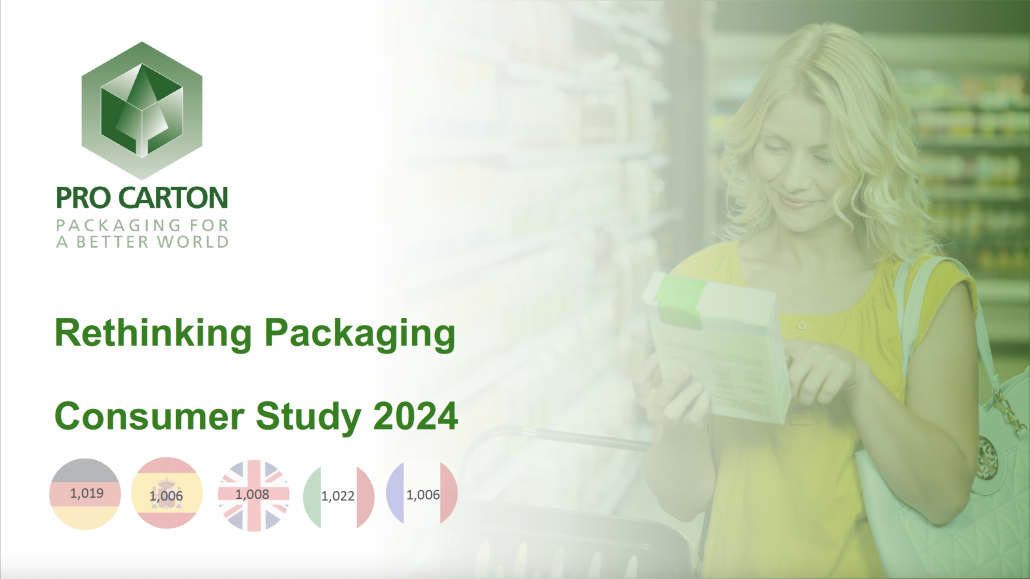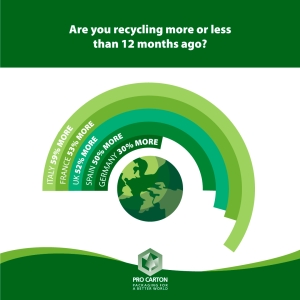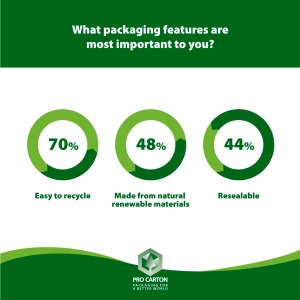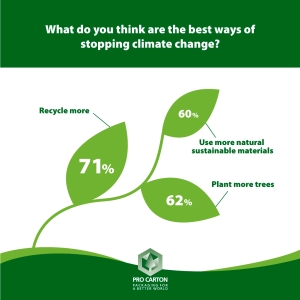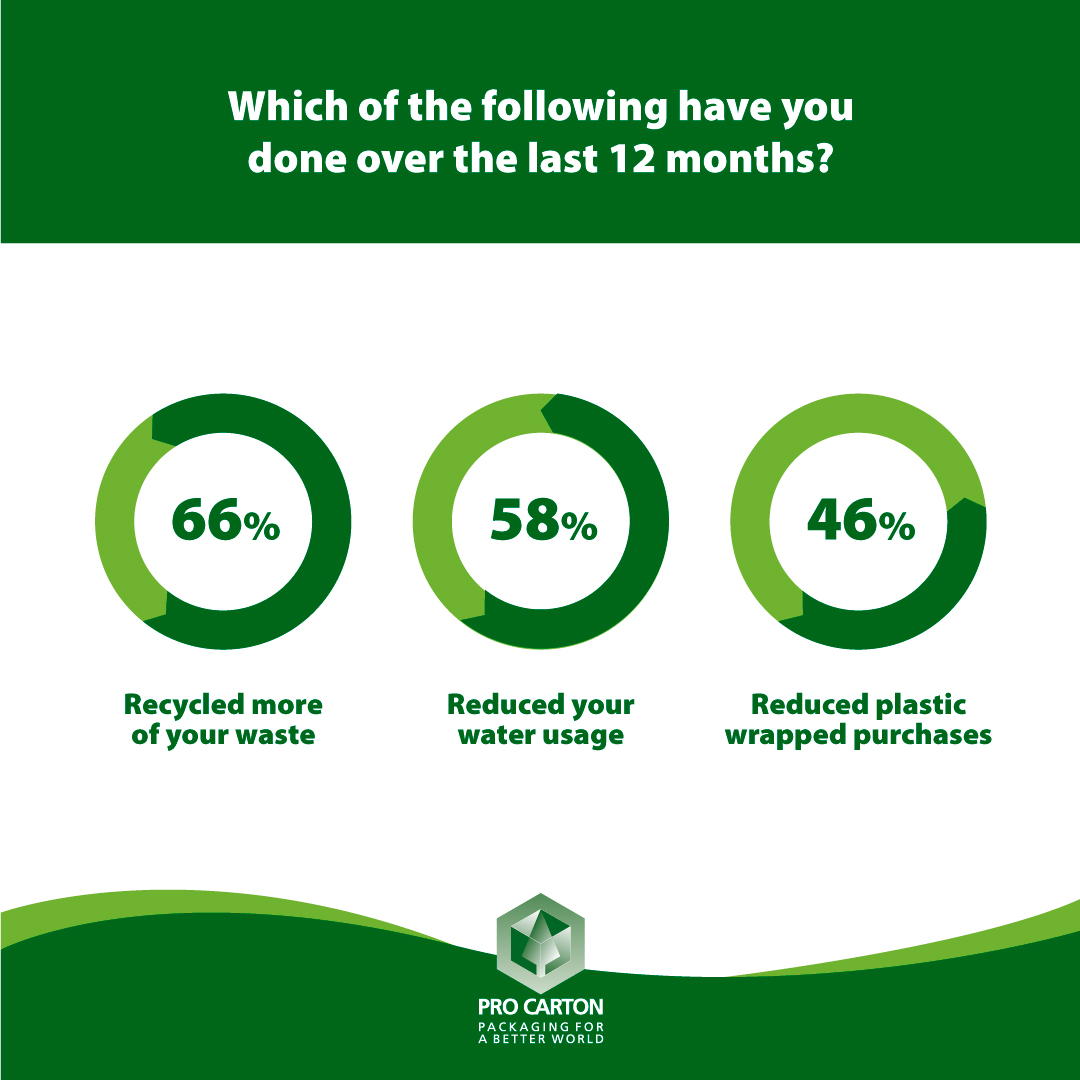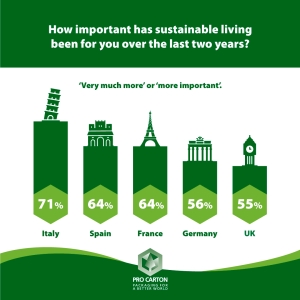Where do consumers place climate change among concerns?
To find out what the current attitudes are, we surveyed over 5,000 European consumers in our latest European consumer packaging perceptions study.
The survey revealed:
- 68% of consumers reported climate change as their biggest concern, with Italy ranking highest at 77%.
- 87% of consumers would choose cartonboard over plastic.
- 82% of consumers are confident they can discern between recyclable and non-recyclable packaging.
- 90% of consumers trust in the recyclability of cartonboard.
With 2024 well underway, consumers are facing a number of pressing issues which impact their everyday lives and influence their purchasing decisions. From the cost of living crisis to climate change and warfare to name a few – all of these issues inevitably impact consumers outlooks. As a result of this, brands across the world must take into account consumer preferences in these times, addressing their needs and demands.
To learn more about this, we recently commissioned our latest European consumer packaging perceptions study, which surveyed over 5,000 European consumers across five European countries – Germany, France, Italy, Spain and the United Kingdom, to learn about their attitudes towards the environment and packaging perceptions.
The consumer survey revealed some fascinating trends. Across Europe, the three largest issues affecting consumers are as follows: climate change (68%), cost of living (66%) and warfare (56%).
When we break down these statistics by each country, we find ourselves with some highly interesting results. In Italy (77%), Spain (72%), and France (70%), respondents ranked climate change as the most significant issue facing them. With record temperatures, droughts and water scarcity people feel the impact of climate change daily. Whilst UK consumers marked cost of living as the most significant issue affecting them (75%), and German respondents expressed that warfare was their greatest concern (66%).
Despite the country specific variations in consumers greatest concerns, the survey demonstrates the importance of climate change. All countries listed climate change within the top three issues facing them, demonstrating the fact that consumers are acknowledging the importance of our environment and the need to mitigate climate change.
Now, let’s look at attitudes towards packaging…
As consumers become more conscious about the environmental credentials of packaging materials, we are seeing more people opting for sustainable choices. In our recent survey, when respondents were offered a choice between two different forms of packaging for a product – plastic and cartonboard – 87.1% of European consumers chose cartonboard. This is another 1% more than we had in our 2022 survey. It is great to see a large percentage of consumers opting for products which are packaged using sustainable and easy to recycle materials such as cartonboard.
Further to this, it is inspiring to learn that consumers are becoming more confident about recycling, with 82% of individuals in Europe expressing a good degree of confidence in their ability to discern between recyclable and non-recyclable packaging. Recycling is key, helping us to re-purpose materials and reduce our waste, and so it is imperative that we continue to recycle as many materials as possible to create a greener future. When we asked European respondents about their trust in the recyclability of sustainable materials, such as corrugated cardboard and folding cartons, consumer confidence levels reached an average of 90% and 87% respectively. These values have now outgrown glass which was traditionally seen as the packaging with highest confidence levels on consumer’s side. A vote of confidence for cartonboard, a motivation and obligation the same time. A motivation to continue investments to further strengthen the recycling of cartonboard same time an obligation to further drive recycling rates up.
Our findings highlight that as a continent, we are taking climate change seriously and attempting to mitigate the dangerous risks it imposes on our planet’s future. It is great to see European brands actively considering consumer preferences, updating their products in line with consumer demands. To name just one example, British supermarket Sainsbury’s is making strides towards sustainability by introducing new fibre-based packaging for mushrooms, which will help to save 775 tonnes of plastic every year.
We hope that you find this research to be insightful, and the results inspire both consumers and companies to strive for a circular economy.
If you would like to learn more about the consumer survey and hear further insights, listen to Winnie Muehling’s recent podcast with Packaging Europe.

